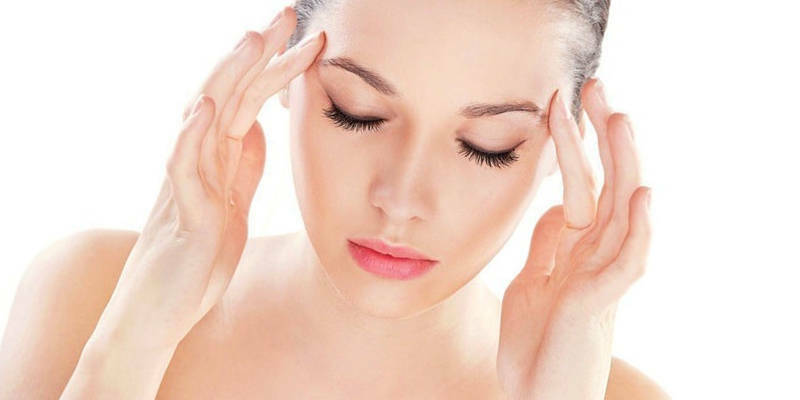
Contents of the page
- 1 The concept of sleepiness and its symptoms
- 2 I always want to sleep: the causes of
- 3 The danger of pathological sleepiness
- 4 Atherosclerotic changes
- 5 Hypersomnia and narcolepsy
- 6 Internal organs diseases
- 7 Lethargy
The mad rhythm of modern life, hard work, constant stresses, endless domestic chores lead to chronic fatigue. Feeling, when I seem to have slept at night, but still I always want to sleep during the day, pursuing many. And, when we get to the bed, it's not always possible to fall asleep immediately. Sleep is often superficial or intermittent, and the next morning it has a feeling of shattering and even more fatigue. Such symptoms indicate chronic mental and physical overwork.
With chronic fatigue during the day, constantly tends to sleep, and at night - on the contrary, a person suffers from insomnia. The result is a decline in strength, weakness and bad mood. The syndrome of chronic fatigue is fraught with the appearance of problems in the family and at work, as the level of efficiency decreases and the quality of life as a whole deteriorates. Let's figure out why you always want to sleep during the day and what to do to cope with this problem.
The concept of drowsiness and its signs

The term "drowsiness" conceals a constant desire to fall asleep in an unseasonable daytime and causes such a state of fatigue or psychoemotional overwork. If this feeling persists you constantly, then the brain experiences overwork and signals the need for rest. In this case, the following signs of drowsiness appear:
- consciousness is dulled;
- slows down the heart rate;
- a yawn appears and the perception of the surrounding reality decreases;
- the eyelids stick together, and the person tends to sleep at an inopportune time.
Permanent daytime sleepiness is a big problem, both for the person himself and for his environment. This feature can develop to a pathological condition that will negatively affect the overall well-being and quality of life of a particular person.
Constantly want to sleep: the causes of

The main factors that provoke pathological daytime drowsiness are:
- severe overstrainment of the mental or physical plane, when you constantly feel fatigue and want to sleep;
- increased anxiety, high emotional stress;
- hypoxia( oxygen starvation) of the brain and pathological conditions associated with the damage to sleep centers;
- CNS disorders, in which inhibitory reactions predominate over excitation processes;
- taking certain medications that cause increased drowsiness;
- craniocerebral trauma;
- of the endocrine system;
- other pathologies affecting the activity of the brain.
If you have good health, but you always want to sleep, this is explained by the reasons for the physiological nature, that is, natural needs. At a young age, prolonged abstinence from sleep is transferred without serious consequences due to the body's own reserves. But this can not go on forever. Without regular night rest, fatigue quickly sets in, which is manifested in lethargy, drowsiness and worsening mood.
The most common physiological causes of daytime sleepiness include:
- Climate factor - seasonal changes in the weather, changes in atmospheric pressure have a significant effect on the overall well-being of a person. For example, with cloudy and rainy weather, meteosensitive persons notice a decrease in blood pressure, apathy and drowsiness, whereas when the sun appears and bright, warm days, vivacity and activity return to them.
- Afternoon sleep. Everyone knows the state when you want to sleep after eating. This effect is explained very simply - if the stomach is full, then all the reserves of the body are aimed at digesting food. At this time, the brain gets less oxygen, and it goes into a saving mode, which immediately affects the overall activity. Especially strongly after dinner, I want to sleep if the stomach is overloaded. Therefore, do not overeat, eat recommended in small portions, fractional, then the digestive system will work in normal mode and the brain does not have to go into a "sleeping" mode.
- Failures in the work of the vestibular apparatus. Everyone knows that the vestibular system is responsible for a sense of balance. However, in many, this device is imperfect, which is especially evident during travel and travel on transport. As a result, with motion sickness, there is a weakness and you want to sleep, a person becomes sluggish and slowed down.
- Unsusceptibility can appear when the biological regime is lost, for example, with a changeable or daily schedule. To feel a vigorous and active day, an adult should sleep at least 7-8 hours. When the regime is broken, and the biological rhythms - are lost, gradually fatigue accumulates, manifested by daytime drowsiness.
- Sleepiness after sex - a lot of energy is consumed during intercourse. But after a sexual discharge comes a sense of satisfaction and peace, all stressful situations are forgotten, and the brain rests. That's why, so I want to sleep after sex.
- Pregnancy - in this state begins to increase the production of hormones and the body there are significant changes. The woman gradually prepares for motherhood and against a background of a changing hormonal background, absentmindedness, inattention and constant drowsiness are noted. That is why during this period, expectant mothers have so much need for a day's rest.
A special role is played by psychological factors
An increased drowsiness a person can feel after a strong emotional or nervous shock. This is how the protective reaction of the organism manifests itself, which tends to protect the nervous system from overload. During a strong psychological stress, the body's resources are depleted, and the loss of strength causes drowsiness.
In case of stress, sleep has a positive effect on a person - relieves excessive stress, normalizes blood pressure, restores the energy resources of the body. In addition, during sleep it is easier to endure a stressful situation, and in the daytime - to resist its negative consequences.
Danger of pathological drowsiness

If you constantly strongly want to sleep, but this condition has nothing to do with physiological causes or stressful situations - you need to think about your own health. Most likely, pathological hypersomnia( increased need for sleep) causes malfunctions in the body.
Drowsiness can cause head trauma, concussion, liver intoxication, dehydration, renal or heart failure. You will always arrive in a sleepy state with certain thyroid disorders( hypothyroidism) or metabolic disorders. Such a state should alert you and serve as an excuse for seeking medical help. Here it is necessary to solve not problems of a dream, and to direct the efforts on revealing of illness and struggle against it.
Unusually strong craving for sleep during the day is noted with depressive states, when a person feels a particularly strong decline in strength. In this state, he does not react to anything, nothing interests him, and there is even no desire to get out of bed. A dangerous symptom is the need for sleep more than twelve, fourteen hours a day, if before that person did not feel such a desire.
We list the states accompanied by pathological drowsiness:
Anemia

With anemia in the blood, the level of hemoglobin decreases sharply, and the process of oxygen transport to the tissues is violated accordingly. From hypoxia, the brain and the nervous system suffer primarily, which immediately affects the general state of a person. Patients with anemia can be identified by appearance - they are pale, subtle, lethargic and apathetic. The consequence of anemia is a decrease in working capacity, daytime sleepiness, weakness, dizziness, an increased need for rest( including several hours of sleep during the day).
Infectious diseases
Colds, exacerbation of chronic infections, deplete the defenses of the body. During the recovery period after the illnesses, a person is in great need of a long rest, so it is not surprising that, returning to the working rhythm, he experiences a periodic desire to lie down during the day. There is even a so-called visceral theory, according to which, after a serious illness, the body especially needs a dream, during which it tests the work of internal organs.
Atherosclerotic changes
One of the dangerous pathologies - atherosclerosis of cerebral vessels leads to oxygen starvation and manifestations of ischemia. In chronic disorders of cerebral circulation, the patient suffers from such unpleasant manifestations as headaches, tinnitus, sleep disturbances at night, drowsiness and absent-mindedness during the day, memory impairment and respiratory depression. Atherosclerotic changes are mainly observed in the elderly and are accompanied by a gradual deterioration in brain nutrition, which causes increased drowsiness throughout the day.
Hypersomnia and narcolepsy
Hypersomnia idiopathic is a disease that often occurs in young people and manifests a tendency to drowsiness during the day, a difficult awakening in the morning, accompanied by a bad mood and increased aggressiveness.
Narcolepsy is one of the variants of hypersomnia, manifested by restless sleep at night, a feeling of fatigue and lack of sleep, insuperable drowsiness, at any time of the day. Such pathological conditions significantly reduce the quality of life and most unfavorably affect working capacity, social and family relationships.
Intoxication of the body

On the background of acute or chronic intoxication daytime sleepiness manifests itself most vividly. What states cause this reaction?
- Alcoholic intoxication - after a state of extreme excitement during intoxication, there is a need for sleep, and before that, there is a retardation and drowsiness.
- Smoking - causes a spasm of blood vessels, which leads to oxygen starvation of the brain. In this case, inflammation of the walls of blood vessels and arteries, which leads to a decline in strength and drowsiness.
- Taking sedatives. Regular use of sedatives promotes the development of chronic drowsiness. The same effect can be observed with the use of sleeping pills.
- Dehydration of the body. This condition develops against a background of food or drug poisoning, is accompanied by loss of fluid and electrolytes due to indomitable vomiting and diarrhea, provokes severe weakness and drowsiness.
Diseases of the endocrine system
Among the endocrine pathologies that can cause daytime drowsiness, experts call the following conditions:
- Hypoteriosis. The disease associated with a decrease in the level of thyroid hormones, which causes a slowdown in metabolic processes and provokes severe drowsiness, apathy, impairment of the brain due to hypoxia.
- Adrenal insufficiency - a pathology manifested by weight loss, loss of appetite, low blood pressure, which leads to high fatigue, reduced efficiency and drowsiness during the day.
- Diabetes mellitus is accompanied by a violation of the carbohydrate balance, and fluctuations in blood sugar levels cause an increase in encephalopathy, one of the symptoms of which is weakness and the need for a day's rest.
Diseases of the internal organs
Many pathologies associated with the defeat of internal organs have a depressing effect on the nervous system and thereby provoke the appearance of weakness, apathy and daytime sleepiness. Among them, the following states can be distinguished:
Heart failure( chronic).It is accompanied by deterioration of cerebral circulation, which leads to hypoxia, sleep disorders, drowsiness during the day.Lethargy

This is one of the most mysterious disorders, the cause of which physicians still can not pinpoint. A person falls into a sleepy state, which can last a long time. There are cases when the patient spent many years in lethargic sleep.
In this case, all signs of vital activity are minimal - breathing is almost not determined, reflexes are absent, heart beat is very slow. In the Middle Ages, people in this state were often mistaken for the deceased and were buried. No wonder there are many terrible legends about people buried alive.
Actually, lethargy is not a dream - it is a pathological depression of the nervous system and the cerebral cortex, which can be caused by nervous and physical exhaustion, prolonged starvation, severe infectious processes accompanied by dehydration or mental disorders.
So, if you are worried about severe daytime drowsiness, chronic fatigue, apathy and other unpleasant symptoms, you should pass a diagnostic examination in a timely manner and find out the cause of this condition in order to know how to fight it.
How to deal with daytime sleepiness?
Many are wondering - what if you want to sleep during the day? If the state of drowsiness is associated with diseases, it is necessary to solve this problem as soon as possible in order to avoid serious complications. The sooner you seek medical help, the sooner you will be diagnosed correctly and choose the appropriate treatment regimen.
If drowsiness of a psychological nature, without the help of a psychiatrist you can not do, since it is very difficult to get out of this state yourself.
With drowsiness of a physiological nature, each person can cope with this condition without outside help. In order not to suffer drowsiness, you can follow the following recommendations:
- Revise the regime of the day - go to bed no later than ten o'clock in the evening, and the sleep itself must last at least eight hours. During this time the body will have time to rest and gain strength.
- Take vitamins in the form of multivitamin complexes or increase the consumption of fresh vegetables, fruits and berries. This will help to improve digestion and healthy sleep.
- Do not overeat( especially at night) - then there will be no feeling of heaviness in the stomach, and instead of sleeping sometime in the afternoon, you will get a surge of energy.
- Take a contrast shower in the morning - it will give vigor and strength for the whole day.
- Morning exercise is useful for health, simple exercises will help to activate energy processes and provide cheerfulness and a good mood for the whole day.
- Ventilate the room more often, as stuffiness negatively affects the well-being, and lack of oxygen leads to drowsiness.



